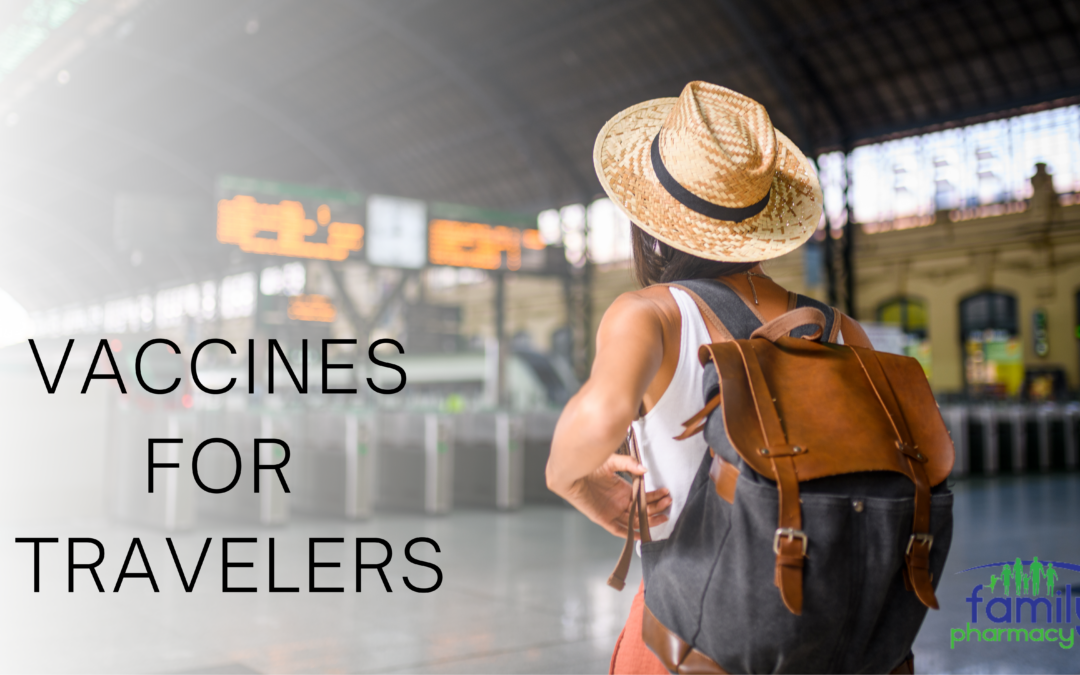Traveling to different parts of the world can be an exciting and fulfilling experience, especially for missionaries. Preparing for a trip can be equally exhilarating. However, along with all the excitement, comes the need to take precautionary measures to avoid contracting illnesses and diseases that are not typically present in your country of origin. Vaccines are an essential part of preventative healthcare for any traveler, especially for missionaries, as they expose themselves to different environments, cultures, and lifestyles that could increase their risk of disease exposure. In this blog post, we will go over everything you need to know about travel vaccines for missionaries.
What Vaccinations Are Necessary?
The list of vaccines that are recommended for international travelers varies depending on several factors such as age, travel destination, health status, and planned activities. Common vaccines that may be recommended include Hepatitis A and B, Malaria, Yellow Fever, Typhoid, Polio, and Rabies. It is essential to consult with a travel health specialist or your primary healthcare provider to determine your specific immunization needs.
When Should You Get Vaccinated?
It is recommended to receive vaccines at least 4-6 weeks before travel. The reason being several vaccines require multiple doses spread over several weeks or months to become fully effective. Planning vaccination at least six weeks in advance enables the immune system to build resistance against the potential diseases that may be present in the destination country, providing maximum protection.
What Are the Potential Side Effects of Vaccines?
Like all medications, vaccines have potential side effects. However, compared to the risks of contracting preventable diseases, the side effects are usually mild and resolve within a few days. Common side effects include soreness at the injection site, fever, headache, or muscle aches. In rare cases, more severe reactions may occur. It is important to discuss any health concerns you have with your healthcare provider before getting vaccinated.
Where Can You Receive Travel Vaccines?
Travel vaccinations can be obtained at your local pharmacy. It is important to check with your insurance policy to see what vaccines are covered because not all vaccines may be covered. Many countries also have requirements for certain vaccinations before entry, and thus it is essential to research thoroughly any requirements before travel to avoid any delay or possible rejection at the airport.
How Can You Stay Healthy When You Arrive at Your Destination?
Vaccinations are an essential part of preventative healthcare. Still, other methods can significantly minimize the risk of contracting diseases when in a foreign world. It is important to maintain good hygiene, like washing hands thoroughly with soap and clean water before eating and disinfecting surfaces such as doorknobs and handles. Insect bites can also be a major source of disease, and therefore regular permethrin-treated clothing and mosquito nets are strongly advised.
In Conclusion
The importance of being vaccinated before traveling cannot be overstated. Missionaries travel to regions where conditions and diseases differ from their home country, and thus regular immunizations are essential to prevent illnesses and diseases. It is crucial to research the required vaccines and receive them well in advance before the travel date. Post-travel, maintaining proper hygiene practices and utilizing protective gear can reduce disease exposure. Remember to consult a healthcare professional before any vaccination to answer any questions and address any concerns. Safe travels!


Recent Comments